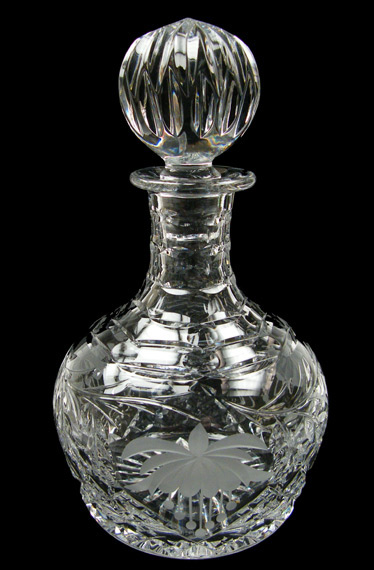While still controversial, decanting wine has a very particular purpose. It removes sediment and promotes oxidation, both of which are beneficial for wine. Decanting a wine allegedly enables it to "open up" by exposing it to air. And while the exact amount of necessary exposure is still being contested, it is widely acknowledged that decanting will alter the taste of a wine, whether for the better or the worse.
The Use of the Whiskey
On the other hand, whiskey is primarily unaffected by
exposure to oxygen, at least not how it will be exposed if it is poured into
another container and sealed in a whiskey decanter which is somewhat less
airtight than a standard whiskey bottle. Whiskey in a bottle that contains a
significant amount of air (because you've been drinking it, you rascal) will oxidize,
but at a far slower rate than wine. The Crystal Glass Decanters are the best options there.
The Scotch Whisky Association (who, we suppose, are not to be
trifled with) has stated that whiskey is a finished product after being bottled
and that this is the case in most cases. "If you preserve a 12-year-old
bottle of whiskey for 100 years, it will always be a 12-year-old whisky,"
says the author. The differences between whiskey and wine are primarily due to
two factors: tannins and the amount of alcohol present. The tannin
concentration of wine is significantly higher than whiskey (naturally occurring
in the grape, borrowed from the barrel, etc.).
Whiskey Decanter made
of glass
The presence of alcohol is more significant than the presence
of tannins. However, whereas wines can have an alcohol by volume (ABV) ranging
between 11 and 15 percent (and more meaningful, of course), nearly all whiskeys
are packaged with at least 40% ABV (and higher if it's "cask
strength"). This indicates two things: first, it
suggests that you need to drink your whiskey at a leisurely pace and don't
consider pouring it into Crystal Glass
Decanters.
If you're still perplexed, retake a look at the decanter.
Wine decanters are mainly designed to stimulate interaction between drink and
air. They are always sold without a cover, and their designs are frequently
intricate. On the other hand, whiskey decanters are typically designed for
stability and pure, unadulterated shine and impressiveness.
Conclusion
In whiskey decanters, the air is not considered since, within
an acceptable period, it will not make much of a difference. Because there's
always a lid on a whiskey decanter, the huge bulbous piece of glass our
businessman inserts back into the bottle after pouring himself a glass of
melancholy Scotch.












0 comments:
Post a Comment